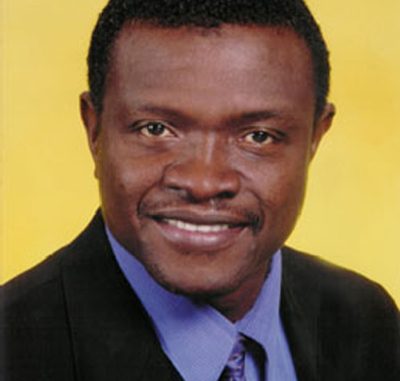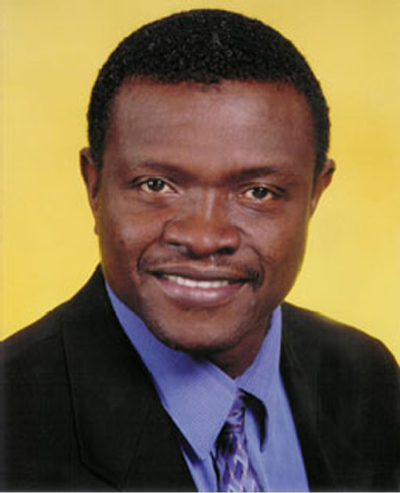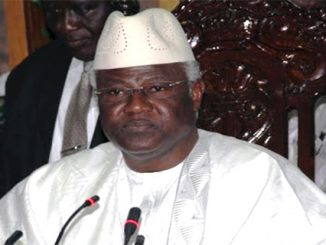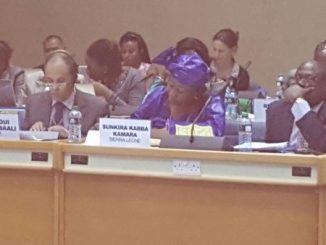
Sierra Leone’s progress report received a passing grade by the World Bank’s International Development Association (IDA) and the International Monetary Fund (IMF) recently. The report stated, “Sierra Leone has made sufficient progress to reach the completion point under the Enhanced Heavily Indebted Poor Countries (HIPC) Initiative.” Amidst hiccups and waved unsatisfied criterion, “Sierra Leone becomes the 21st country to reach the completion point under the Initiative.” In 2005, the Executive Board of the IMF wrote; “The Board agreed to waive the nonobservance of a performance criterion on the accumulation of new external arrears under the previous PRGF arrangement that expired in June 2005 that resulted in a noncomplying disbursement under that arrangement.” On December 18, 2006, the Executive Board wrote:
To reach the completion point, Sierra Leone met the following conditions: (i) preparation of a full PRSP and implementation for at least one year, as evidenced by the joint staff assessment of the PRSP and the country’s annual progress report; (ii) maintenance of macroeconomic stability as evidenced by satisfactory implementation of the PRGF-supported program; (iii) completion of structural measures in the areas of governance and decentralization, private sector development, education and health; and (iv) an increase in spending on designated poverty reducing expenditure priorities that was proportionate to HIPC relief.And, it qualified Sierra Leone for the necessary debt relief according to IMF and World Bank officials. But it does not go without the fact that meeting the HIPC Initiative objectives have also coincided with the SLPP-led government’s double paddling efforts in the last two years in preparation for parliamentary and presidential reelections. Before that, the banks and donor nations, including UN officials, had nothing but warning for Sierra Leone against bad behaviors – bad governance, youth neglect, pervasive corruption in government and the unwillingness to comply with the World Bank, IMF and African Development Bank (AfDB) Poverty Reduction Growth Facility (PRGF) guidelines, which had delayed the upgrading of its Interim Poverty Reduction Strategy Paper (IPRSP) since 2002.
Mr. Mannah, whose PhD is in economics stated: The political economy of over borrowing is easy to understand for economists at least. In the case of Sierra Leone, the APC government that ruled Sierra Leone for twenty seven years over borrowed to benefit its cronies, and now the SLPP government has had to deal with the consequences. There was a strong incentive to borrow because there were kickbacks in the loans and the projects that they financed, like the OAU conference that was hosted in 1980. It was easy for that corrupt government to be influenced by Western businessmen and financiers. They wined and dined those responsible for borrowing as they sold their loan packages, and told them why it was good time to borrow, why their particular package was attractive, why that was the right time to restructure debt.
First, in an overzealous effort to pass blame on the former All People’s Congress (APC) government, Mr. Mannah could not count how long the APC had ruled in his own country. He stated that the APC ruled for twenty-seven years when the APC actually ruled for twenty-four years. Creating additional three years from the figment of his imagination undermines the trusted surrogacy he bestows upon himself as the bearer of such important information. Why should we trust Mr. Mannah’s surrogacy when he could not go back to verify how long the APC ruled when the answer was just a click away if he did not know? Yet, he claims to be a civic competent man who also masquerades as a trusted surrogate. He only succeeds in showing that he is a trustworthy surrogate to President Ahmed Tejan Kabbah, Vice President Berewa and the SLPP. To say that the leaders of Sierra Leone accumulated $1.6 billion in debt over food and wine is an absurdity that deserves no attention especially when it came from someone who doubles as a party’s communications director and an economist. Thus, he should not have limited his erroneous postulation to the APC government alone owing to the SLPP-led government’s borrowing activities since 1996.
A major accomplishment of the SLPP-led government is its lukewarm willingness to conduct elections. Let us bear in mind that conducting elections alone is not the beginning or the end to a democratic process. This time, we are hoping that the SLPP will have the nerve to repeat the good record of Sir Albert Margai of Africa who conceded to an extremely controversial APC victory in 1967 elections in Sierra Leone to become one of the few African incumbent leaders to be defeated in a democratic process. We are hoping that the SLPP of today will uphold such a good democratic principle by not only repeating that good record but also making it better by peacefully allowing free and fair elections and giving way to another party for the leadership when that need arise.
There is much at stake here as we approach 2007 elections. It is a sad story to learn that under the Disarmament, Demobilisation and Reintegration program the country actually disarmed over 6000 childsoldiers, but could not account for an equal or at least close to an equal number of childsoldiers under its Reconstruction, Resettlement and Rehabilitation program that followed. It is only logical that the government and the NGOs that were concerned with these two phases of reconstruction had a good tally of youths that needed help when they disarmed them under the first phase of Disarmament, Demobilisation and Reintegration program. But once their trigger-happy fingers were uncoiled from the triggers of their AK-47s, they became meaningless.
Recently, the outgoing UN Secretary General, Kofi Annan, raised concerns that the youth problem persists in Sierra Leone. The SLPP-led Parliament is fond of making good laws and good policies, at least, in Parliament and on papers. In fact, the SLPP majority Parliament is known to have made the most laws, since 1996 to present, than the APC’s 24-year rule and the military regimes of the past. The SLPP-led government’s PRSP, which is tailored to the IMF, World Bank and the AfDB’s Poverty Reduction Growth Facility (PRGF) guidelines, is an outstanding document, at least, in theory. The Interim Poverty Reduction Strategy Paper (IPRSP) that was formulated in 2002 addressed the same problems as the PRSP that has just been approved only that nothing happened until now.
For a country that has vast fallow land mass, the SLPP could only point to NGO sponsored youth subsistence-farming program in the Pujehun district and yam-faming project in Waterloo. Sierra Leone, after five years, is still unable to feed itself. Since 2002, Sierra Leone can no more blame its lack of massive rice farms to feed itself on the war. Rice can be cultivated two times a year in Sierra Leone to be modest based on the climate. Yet, there is no large-scale mechanized farming project going on; the country still dwells on donor money for the purchase of imported grains. The president had committed himself to food security by the end of the year 2007, which is yet to be accomplished and only has months left now on his presidential calendar. He had promised to revisit the land tenure of Sierra Leone, which is certainly an impediment to large-scale mechanized farming – that is yet to be done. How does he plan to achieve food security at the tail end of his second term when the land tenure has become impossible to touch because of ensuring election victory for the SLPP and Vice President Berewa? Agriculture at about 30 per cent of GDP is not an impressive figure for an agriculture-based economy as Sierra Leone. Sierra Leone’s economy has the potential to be more agriculturally driven at about 50 per cent of GDP. The country needs to attract investors to spend only half of the investment that is now being spent on the mining sector in Agriculture to yield a return that would be more than 30 per cent of GDP.
This brings us to the conclusion that the donors, the World Bank and the IMF have much monitoring to do to ensure a proper use of donor funds. A nicely written paper cannot get up from the shelves and do the work. For the people of Sierra Leone, you have the greatest weapon that has been provided to you through the SLPP’s lukewarm willingness to conduct elections for you to determine who must deliver these expectations to improve your lives. Before we leave, let us not forget to commend the SLPP government for its willingness so far to conduct elections. There are many countries in Africa in dire need of such multi-party democratic process.But the fact remains that, Mr. Mannah’s suggestion that the SLPP-led government is transparent is pure propaganda. The hidden propaganda is disgusting more than the open disgrace. Which would the people and the nation rather hear – the concocted propaganda of Mr. Mannah painting a surrealist picture of the nation, or this true analysis of the state of our nation? Why cover or decorate the blemishes as if they do not exist. Democracy will only prevail if the politicians and the government accept their weaknesses, discuss their merits and demerits, and take prompt action to correct them. It is only through continuous exposure and disciplinary action that corruption can be reduced. Mr. Mannah must accept the fact that the SLPP-led government of Sierra Leone is not transparent, notwithstanding its passing progress report from the world organizations.





Leave a Reply